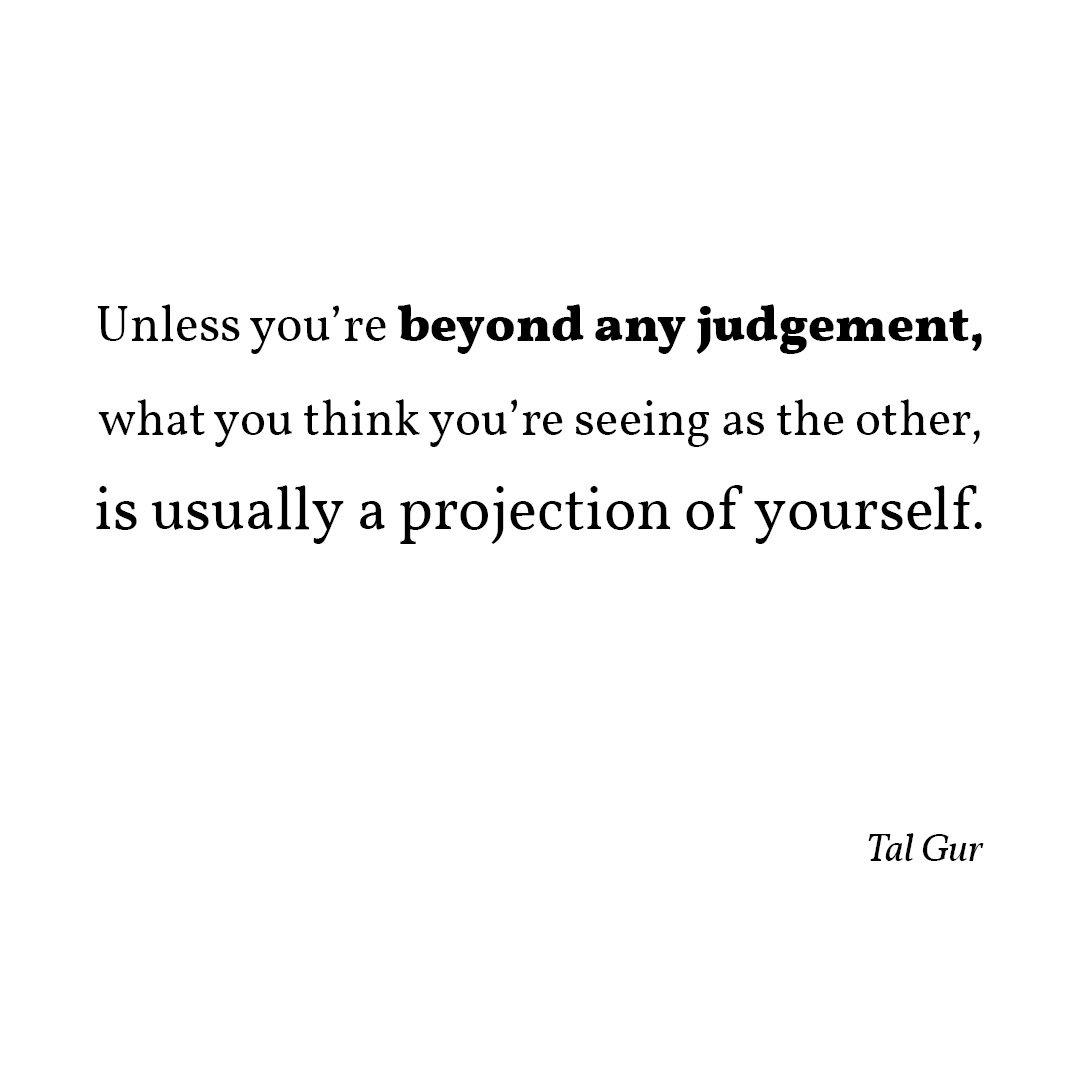Unless you’re beyond any judgement, what you think you’re seeing as the other, is usually a projection of yourself
Our perception of others is often colored by our own experiences, beliefs, and biases. It suggests that when we judge or interpret someone else's actions, behaviors, or qualities, we are actually projecting our own thoughts, feelings, and characteristics onto them. In other words, we tend to see in others what we carry within ourselves.
To truly grasp the meaning here, it's important to understand the concept of judgment. When we judge others, we are essentially making evaluations based on our own values, expectations, and standards. These judgments can be influenced by our past experiences, cultural conditioning, and personal beliefs. We often project our own insecurities, fears, and desires onto those around us, shaping how we perceive them.
Imagine this scenario: You meet someone for the first time, and upon interacting with them, you instantly feel a strong dislike. You might label them as rude, arrogant, or unfriendly. But have you ever stopped to question why you're perceiving them in this way? Could it be possible that your own insecurities or past experiences are causing you to project these qualities onto them? It's worth considering.
Now, let's take a step back and explore the concept of being "beyond any judgment." This implies a state of mind where we have transcended our own biases and preconceptions. It suggests that when we are free from our own judgments, we can see others more clearly and objectively, without projecting our own baggage onto them. It's like removing a pair of tinted glasses and seeing the world in its true colors.
So, how can we move closer to this state of being? It starts with self-awareness and introspection. By becoming aware of our own thoughts, emotions, and biases, we can begin to untangle them from our perception of others. This requires a willingness to examine our own beliefs, challenge our assumptions, and cultivate empathy.
By acknowledging that our judgments and perceptions are often projections of our own inner world, we can cultivate a greater understanding and compassion for those around us. Instead of assuming the worst in others, we can approach them with curiosity, openness, and a willingness to learn from their perspectives.
Is there a historical example that illustrates the message of the quote?
One historical example that can illustrate the message of the quote is the case of the Salem witch trials in 17th-century colonial Massachusetts.
During the Salem witch trials, a series of hearings and prosecutions took place in which people were accused of witchcraft. Many innocent individuals were falsely accused and condemned based on superstition, fear, and mass hysteria. The accusers believed that they were identifying witches in their community, but their accusations were often projections of their own fears, anxieties, and prejudices.
The quote suggests that our perception of others is often influenced by our own beliefs, biases, and insecurities. In the case of the Salem witch trials, the accusers projected their fears onto others, leading to tragic consequences. They saw in others what they feared or despised within themselves, and this projection resulted in the unjust persecution of innocent people.
The lesson from this historical example is that when we judge others without self-awareness or introspection, we may inadvertently project our own flaws, biases, and preconceptions onto them. It highlights the importance of self-reflection and mindfulness in our interactions with others, reminding us to question our own judgments before attributing them to someone else. By being aware of our own projections, we can strive for a deeper understanding and compassion towards others, avoiding the pitfalls of misjudgment and prejudice.
Chief Editor
 Tal Gur is an author, founder, and impact-driven entrepreneur at heart. After trading his daily grind for a life of his own daring design, he spent a decade pursuing 100 major life goals around the globe. His journey and most recent book, The Art of Fully Living, has led him to found Elevate Society.
Tal Gur is an author, founder, and impact-driven entrepreneur at heart. After trading his daily grind for a life of his own daring design, he spent a decade pursuing 100 major life goals around the globe. His journey and most recent book, The Art of Fully Living, has led him to found Elevate Society.





















